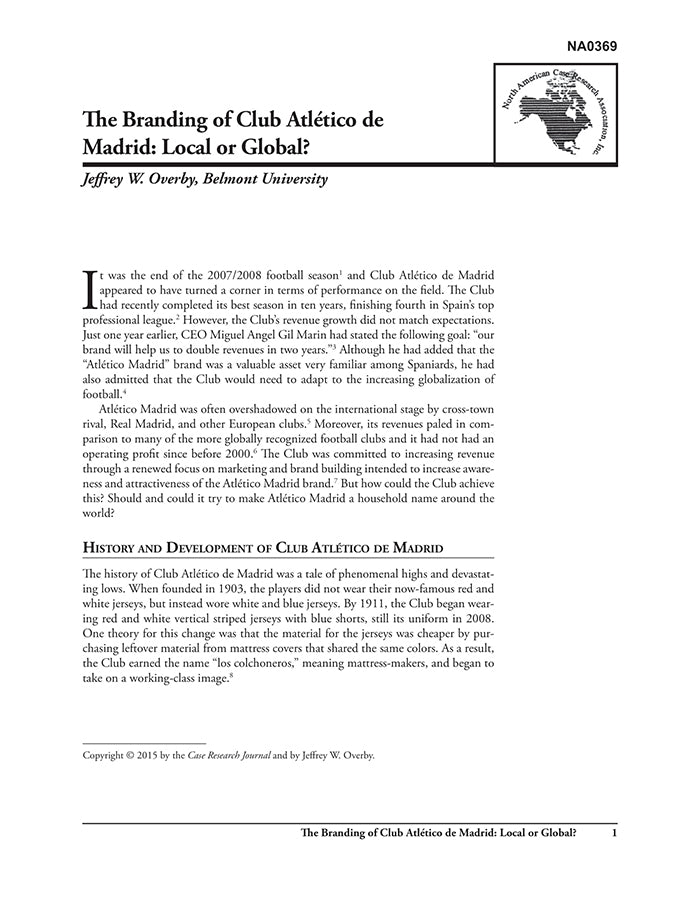The Branding of Club Atl tico de Madrid: Local or Global?
受取状況を読み込めませんでした
With four percent of the world's population involved in a sport that generated nearly $3.1 billion in annual revenue, it is no wonder that football clubs were seeking to capitalize on global opportunities. However, as football clubs moved beyond their traditional borders, they confronted the realities of globalization and struggled to determine how to evolve their marketing strategies to differentiate their brand among the competition. Club Atl tico de Madrid (Atl tico Madrid) was facing such a problem in 2008. Despite a rich history, loyal fan support, and even recent steps to internationalize-such as celebrity endorsements and exhibition matches against U.S. teams-the Club remained largely a Spanish brand and in the shadow of its cross-town rival Real Madrid on the world stage. It was the end of the 2007/2008 football season, and Club Atl tico de Madrid appeared to have turned a corner in terms of performance on the field. The Club had recently completed its best season in ten years, finishing fourth in Spain's top professional league. However, the Club's revenue growth did not match expectations. Just one year earlier, CEO Miguel Angel Gil Marin had stated the following goal: "our brand will help us to double revenues in two years." Although he had added that the "Atl tico Madrid" brand was a valuable asset very familiar among Spaniards, he had also admitted that the Club would need to adapt to the increasing globalization of football. The Club was committed to increasing revenue through a renewed focus on marketing and brand building intended to increase awareness and attractiveness of the Atl tico Madrid brand. But how could the Club achieve this? Should and could it try to make Atl tico Madrid a household name around the world?
【書誌情報】
ページ数:37ページ
サイズ:A4
商品番号:HBSP-NA0369
発行日:2015/6/21
登録日:2016/1/6

